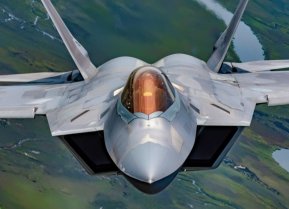The Houthis Must Be Stopped
The crisis in the Red Sea may be the last opportunity for the United States to demonstrate its ability to shore up a coalition, show leadership and resolve, and force Iran and its partners to stand down.
Operation Prosperity Guardian, which started in December to secure freedom of navigation in the global commons, entered a new stage last night. It is one of the turning points in the struggle led by Iran and supported by Russia and China to push the United States out of the Middle East. It is a part of a broader global confrontation in which Moscow, Beijing, and Teheran, supported by Caracas and Pyongyang, openly challenge the Western powers and their allies. It is another test of the Biden administration in the crucial year of 2024 when a presidential election will decide the future course of the United States.
On Thursday night, U.S. and British planes bombed Houthi military targets in the capital, Sana’a, and the port of Hodeida. However, the coalition needs time to return a sense of security to the Red Sea. Its success is vital to guard the prosperity of the international economic system against the anti-status quo powers that would endanger something as basic as the freedom of movement on the ocean.
The Houthis are an Iranian-backed rebel group that controls a large part of Yemen. They are not a new version of desperate Somali pirates roaming for plunder. They are acting out at the behest of Iran, trained, equipped, and militarily supported by the Shia theocratic dictatorship. Moscow and Beijing have even lent rhetorical support. Lebanon’s Hezbollah has provided military expertise and training while, according to the United States intelligence sources, Iran has been providing intelligence, weapons, and coordination. Lebanese and Yemeni paramilitaries are naturally drawn toward Iran due to shared Shia Islamic sectarian identity, massive financial support, and a shared enmity towards Saudi Arabia, the flag-bearer of the Sunni world.
The purpose of the Houthis is not only to “punish” Israel for its operation in Gaza but also to deny pro-American Egypt the vital revenue from the Suez Canal, a vital chokepoint in the global maritime transportation system, and to disrupt supply chains into Europe and North Africa. The Tesla plant in Germany already announced it will shut down for two weeks due to the parts supply interruption. Maritime insurance, fuel costs, and transportation tariffs all shot up, contributing to global inflation.
The economic and maritime disruption is highly damaging and indiscriminate. Ships passing through the Red Sea, a vital chokepoint moving 15 percent of global trade totaling roughly $1 trillion annually, are currently under attack. The Houthis said they have started attacking international shipping as part of an effort to “support” Hamas’ war against Israel. Forty-four countries have expressed concerns about Houthi attacks, prompting the United States and thirteen other nations to sign a statement condemning these attacks against commercial vessels.
The longstanding hostilities between Saudi Arabia and Iran and its Houthi allies were most dramatically showcased by the daring Houthi-ascribed drone raid that damaged the Abqaiq oil processing complex in 2019 and disabled Saudi Arabia’s largest oil refinery in 2022. The kingdom’s largely unproductive eight-year military intervention in northern Yemen wound down over the last two years due to Biden administration pressure. Hellbent on improving relations with Iran, the White House also removed the Houthis from the list of Foreign Terrorist Organizations in 2021. Needless to say, this did not help.
Despite the deep-seated rivalry between Iran and Saudi Arabia, they benefit from the ongoing disorder in the Red Sea because it is set to continue pushing oil prices upward. While Iran enables the disorder, Saudi Arabia, painfully aware of the fickle nature of American support, refuses to join the coalition. Saudi Arabia has long been drifting away from its former status as the cornerstone of America’s Middle Eastern security architecture. Biden’s failed 2022 trip to Saudi Arabia to beg for increased oil production resulted in nothing more than but a memorable fist bump, which was shortly upstaged by Beijing’s brokered Saudi-Iranian normalization. Beijing now purchases four times as much Saudi oil as the United States.
Saudi Arabia’s purchasing of Russian diesel to help Moscow dodge sanctions in exchange for Russian support hasn’t seemed to have helped Riyadh that much while burning many bridges. Saudi Arabia’s ambitious Vision 2030 plan to reform its economy through sweeping privatization appears to be running out of steam as well.
Unlike the kingdom, Iran’s anti-American stance is vehement, vitriolic, and decades old. Tehran has joined the Shanghai Cooperation Organization and is willing to disrupt the Middle East to Moscow’s and Beijing’s delight. It is leading the charge of the “Resistance Front” against Israel. Iranian oil production in 2023 surged thanks to growing consumption from China and a surge in illicit trading, and its wider economy grew at double the rate of other Middle Eastern and North African states. Despite this, inflation remains high, and the service and light industry sections of the Iranian economy are lurching from one crisis to another. Higher oil prices are seen as a panacea for the economy, which Iran openly stated in conjunction with Iraq at the end of 2023.
Politically, Iran has suffered a series of setbacks in the last year, making activating the Houthis desirable. To its north, Iran’s Armenian partners have undergone repeated setbacks, and now Iran seems powerless to stop Azerbaijan’s reordering of Nagorno-Karabakh. The underperformance of Iranian drones aiding Russia in its war against Ukraine has damaged Tehran’s prestige. A year of protests at home and the strategic failure of Hamas in its war against Israel may all incentivize Tehran to take drastic action to boost the economy and hurt the Western system.
A rise in oil prices acts as a tax on Western oil-consuming economies, slows economic growth, and fuels inflation. As of January 11, 2024, prices for most oil blends have climbed between 7 percent and 10 percent since the crisis began. In the last month, BP, Equinor, Maersk, Evergreen Line, and HMM have decided to reroute or halt their operations in the Red Sea. Major shipping companies, including Hapag-Lloyd and Mediterranean Shipping, have suspended activity in the area.
Around 100 ships have thus far traveled around the Cape of Good Hope instead of utilizing the Red Sea, delaying them weeks and significantly increasing shipping expenses. Other companies such as Shell, TotalEnergies, Gunvor, Vitol, Glencore, Neste, and Cheniere have all declined to comment regarding their plans to halt or reroute their operations.
Uncertainty and fear, driven by the geopolitical storms of the Red Sea crisis, appear to be spreading in the markets. This may be the last opportunity for the United States to demonstrate its ability to shore up a coalition, show leadership and resolve, and force Iran to stand down. As the lines of communication with Moscow are broken and with Beijing are highly uncertain, a broader Middle East war—and the global conflict—can be prevented at this point only through the overwhelming show of strength, with follow-up diplomacy restoring American and Western supremacy in the region.
The alternative is chaos—and further conflict.
About the Authors
Ariel Cohen, Ph.D., is a Senior Fellow (non-resident) at the Atlantic Council and Managing Director of the Energy, Growth, and Security Program at the International Tax and Investment Center. He is an international energy columnist for Forbes.
Wesley Alexander Hill is Lead Analyst and International Program Manager at the International Tax and Investment Center’s Energy, Growth, and Security Program. He is a China and Africa expert.
Image: U.S. Air Force.


